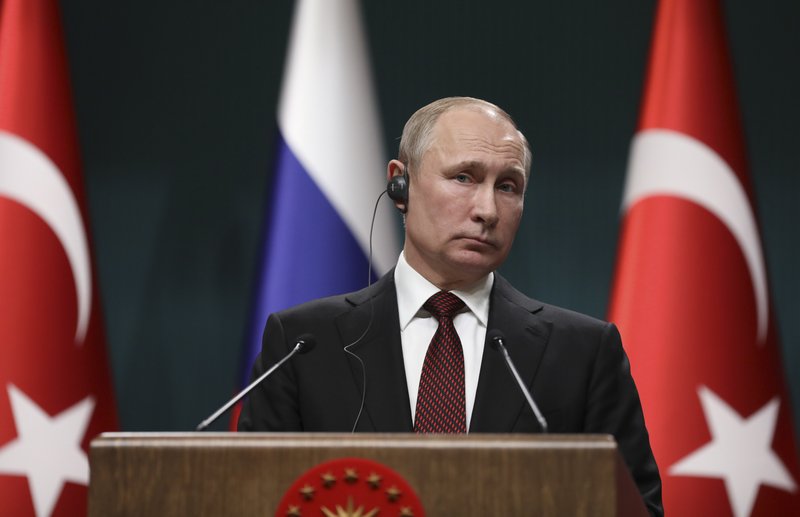LONDON -- Britain's defense laboratory acknowledged Tuesday that it hasn't tracked down the source of the nerve agent that poisoned a Russian ex-spy, a statement the Kremlin said proved that British accusations of Moscow's involvement were baseless.
Scientists at the U.K'.s Porton Down lab previously identified the poison as a Soviet-developed type of nerve agent known as Novichok. The British government has said the only plausible explanation was that it came from Russia and blamed Russia for the attack on the former double agent and his adult daughter.
Porton Down Chief Executive Gary Aitkenhead said Tuesday that scientists at the lab "have not verified the precise source, but we provided the scientific information to the government who have then used a number of other sources to piece together the conclusions that they have come to."
Aitkenhead told Sky News that the attack with a highly toxic chemical weapon was "probably only within the capabilities of a state actor."
At the same time, the lab's job is "to provide the scientific evidence that identifies what the particular nerve agent is ... but it's not our job to say where that was actually manufactured," he said.
Russian President Vladimir Putin quickly pointed at Aitkenhead's statement as evidence that British accusations of Russian involvement were unfounded. Moscow has fiercely denied being behind the March 4 attack.
"The speed at which the anti-Russian campaign was launched causes bewilderment," Putin said from Turkey, where he met with President Recep Tayyip Erdogan.
Putin added that Russia will push for a thorough probe and expects the international chemical weapons watchdog to consider Russia's input.
"We want a thorough investigation. We would like to take part in it and expect to receive all the relevant materials," Putin said. He insisted the nerve agent that Britain said was used to attack former double agent Sergei Skripal and his daughter, Yulia, could have been produced by some 20 nations.
Putin spokesman Dmitry Peskov said Moscow expects an apology.
The poisoning of the Skripals in Salisbury, England, has sparked a crisis in relations between Russia and the West, producing a wave of diplomatic expulsions unseen even at the height of the Cold War.
Britain, along with the United States and at least two dozen other U.K. allies wanting to show solidarity, have expelled over 150 Russian diplomats. Russia has ordered the same number of their envoys out.
The British government insisted that several pieces of information contributed to its conclusion that the Russian government was responsible for the nerve agent attack, including intelligence that Russia had produced Novichok within the past decade and had investigated ways of delivering nerve agents for assassinations.
Moscow has rejected those claims, saying it never produced the agent and that it completed the destruction of its Soviet-era chemical weapons stockpiles last year under international oversight.
Russian officials also have suggested the poison could have come from Britain, pointing out that Porton Down conducts secret chemical and biological weapons research.
Russian Deputy Foreign Minister Alexander Grushko called the poisonings a "provocation arranged by Britain" to justify high military spending because "they need a major enemy."
Aitkenhead said there was "no way" the nerve agent could have come from the high-security facility.
Skripal, 66, a former Russian intelligence agent convicted of spying for Britain, remains in critical condition. British officials say his 33-year-old daughter's health is improving.
At Russia's request, the Organization for the Prohibition of Chemical Weapons plans to hold an emergency meeting on the case today at its headquarters in The Hague.
Information for this article was contributed by Raf Casert and Nataliya Vasilyeva of The Associated Press.
A Section on 04/04/2018
